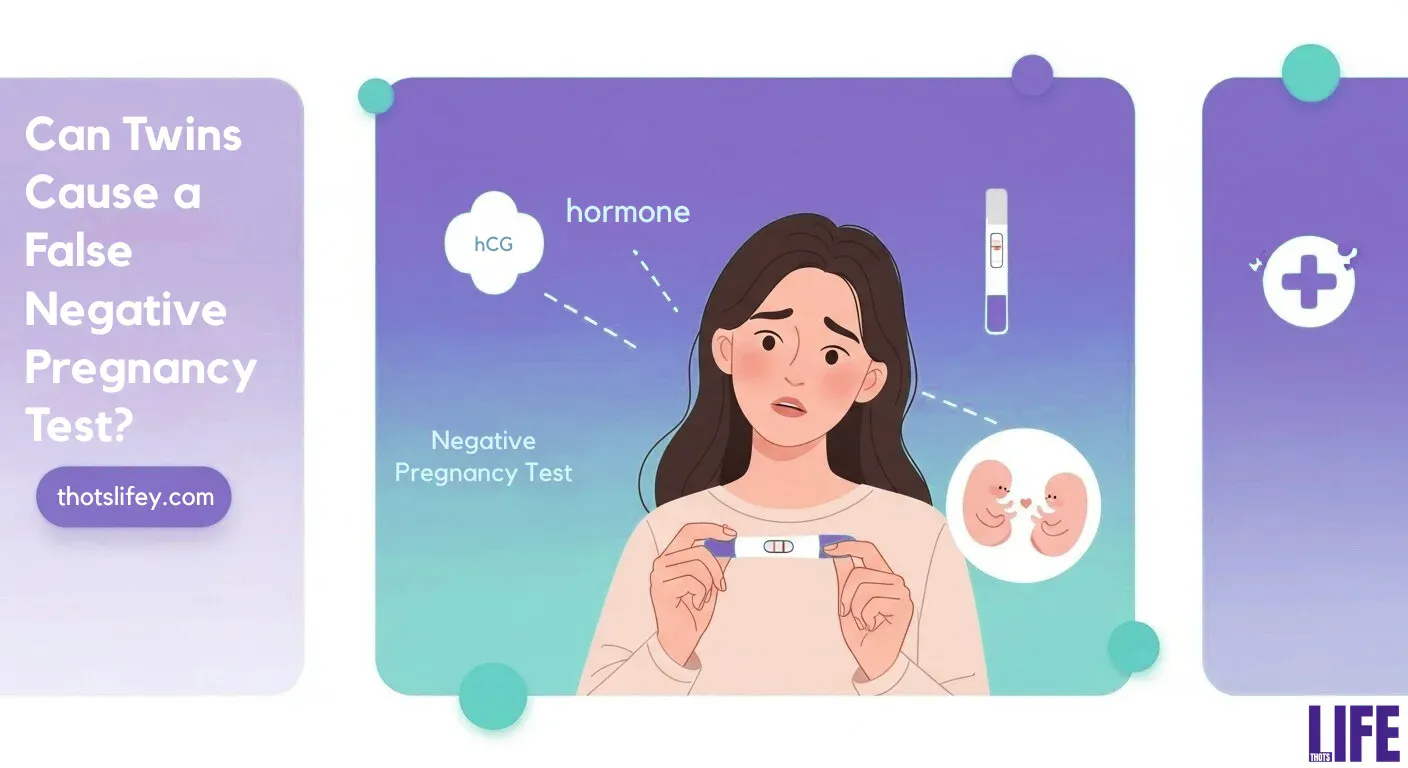Blog
Can Twins Cause a False Negative Pregnancy Test?

Can twins cause a false negative pregnancy test? Let’s start where most people actually are: that moment when your body feels different in a way you can’t really explain. Not dramatic, not something you’d announce to the world just a quiet shift you notice when you’re brushing your teeth, or trying to sleep. Maybe you’re late. Maybe your chest feels sore in a way that doesn’t match your usual cycle. Maybe food suddenly tastes too strong. So you take a pregnancy test, expecting the clear answer… and it says no.
And here’s where the mental side creeps in the second-guessing, the “am I imagining this,” the stress loop that does nothing helpful for your body. Then later, you find out you’re actually pregnant and carrying twins. It sounds wild, but yes, in rare cases, twins or higher-order multiples can cause a false negative result. The hormone levels can get so high that the test can’t read them correctly. So let’s break down how that happens, why it’s not common, and how to handle the physical health confusion that comes with it.
How Home Pregnancy Tests Work
When you pee on the stick, what you’re really doing is checking for a hormone called human chorionic gonadotropin (hCG). That hormone is made by the placenta after the embryo implants. If a test finds enough of it, you get a “pregnant” result. If not, then “not pregnant.” Most of the time that works fine. But there are a lot of “ifs” in that sentence: what counts as “enough,” when your body started producing it, how much diluted your urine is, and how your test device is built.
You might think: “If I have two babies, should I have more hCG? So the test should show more clearly, right?”
In many cases yes multiple gestation often means higher hCG levels than a single gestation. That’s known and documented. The problem isn’t “not having enough,” it’s when there’s too much or the test misreads the situation.
The Hook Effect
Here’s where it gets weird: some pregnancy tests work like a “sandwich” of antibodies. One antibody captures the hCG, the other signals “yes”. If hCG levels shoot through the roof much, much higher than average the antibodies get overwhelmed. They can’t form the right complexes, the signal drops, and the test gives you a negative result. That’s called the hook effect (also called the “prozone phenomenon”).
In a paper published in Cureus (2022) titled “False Negative Urine Pregnancy Test: Hook Effect Revealed”, the authors describe exactly this scenario when hCG concentrations were extremely high.
Why a Test May Show Negative
- Testing too early. If you test right after a missed period, your hCG may not have reached the detectable threshold.
- Diluted urine. If you’ve drunk a ton of fluids or tested midday instead of first-morning urine, hCG concentration may be low enough to miss.
- User error. Using an expired test, not following instructions, reading the result too soon or too late.
- Very late testing. In rare cases, if you’re already far along and your hCG is unusually high, you might hit the hook effect territory.
- Certain medical conditions. Ectopic pregnancy, some trophoblastic diseases, or medications can affect hCG levels or test accuracy.
Signs You Might Want to Follow Up
If you got a negative test but you also have:
- A missed period or very late period
- Pregnancy-type symptoms (nausea, breast tenderness, fatigue)
- An abdominal “feeling” or size change that seems ahead of time
- Risk factors for multiples (fertility treatments, family history)
Then consider seeing a healthcare provider for a blood hCG test (quantitative), an ultrasound, or both. A home urine test cannot catch everything.

| Situation | Interpretation |
|---|---|
| Negative home urine test + mild symptoms | Most likely: test too early / low hCG / diluted sample |
| Negative test + strong symptoms + risk of multiples | Consider: blood test + ultrasound; less likely, but possible: hook effect |
| Positive test | Proceed with care as pregnancy and follow up |
| Very high suspicion (e.g., fertility treatment, known twin risk) | Don’t rely solely on home test: ask for quantitative hCG or ultrasound |
Conclusion:
If you’re experiencing pregnancy symptoms but your home test is negative, you’re not alone. While twins can contribute to a false negative in rare cases due to elevated hCG levels, the more important point is to pay attention to what your body is indicating. A home test is only one screening tool. If your symptoms persist or you feel strongly that something has changed, the appropriate next steps are a quantitative blood hCG test and, when indicated, an ultrasound. Consulting a healthcare professional will provide clarity, reduce uncertainty, and ensure you receive the appropriate care moving forward.
References
- Priyadarshini S, Manas F, Prabhu S. False Negative Urine Pregnancy Test: Hook Effect Revealed. Cureus. 2022;14(3):e22779. DOI:10.7759/cureus.22779.
- Clearblue. “What is the hook effect in pregnancy test results: Understanding this rare false negative.” Accessed May 27, 2024.
- Medical News Today. “What to know about the hook effect in pregnancy.” Accessed Feb 21, 2020.
